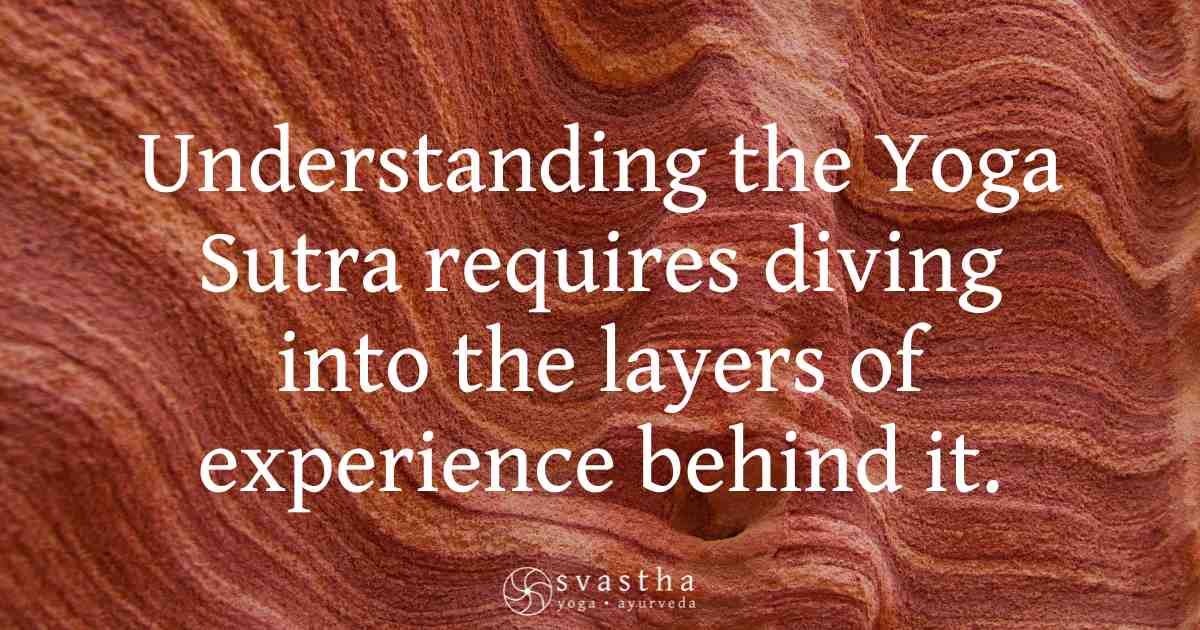The real and effective path to wellbeing is always holistic
The real and effective path to wellbeing is always holistic

When I teach yoga psychology, I sometimes introduce this little experiment. You can try it for yourself as below: “Stand on your feet and slouch. Collapse your chest, round your upper back, hunch your shoulders forward. Drop your head and look at the ground. Slacken your legs and feel gravity… ...
Read MoreYoga guides us to look beyond the thoughts in our mind

Most of us tend to have thoughts like these in our minds: “I must do this perfectly.” “I am a failure.” “What will they think of me if I do this?” “What if something happens and I am not able to handle it?” Such thoughts, to an extent, are normal… ...
Read MoreRelaxed and intelligent persistence is a key to positive changes

Self-care and positive change is vital to a good life. But the road to those changes is not always smooth. We do run into problems and challenges.When you run into problems with a skill or exercise, don’t try to force your way through it. You may have better options…. ...
Read MoreHolistic movement skills are an investment that pays lifelong dividends

In the previous post, I had pointed out that movement is vital to wellbeing in multiple ways. Let me add to that now, highlighting even more ways by which regular and skillful movement benefits us. Movement increases metabolic health. It reduces your requirement for insulin and mitigates spikes in blood… ...
Read MoreSkills of healthful movement are fundamental to wellbeing

Movement is fundamentally necessary for our good health and longevity. If we stay sedentary for extended durations every day, we risk increasing ill-health in multiple ways. You may have heard this catchphrase, “sitting is the new smoking.” In historical times, people were naturally moving around regularly throughout the day more… ...
Read MoreYoga Sutra: A clear path to inner quietness

All our experiences are internal to us. The objects that we experience may be outside, but the experience itself takes place in our mind, our body, and in our cognition. Yoga being a mental state, is also an experience, but unlike other experiences, it is the wholly internal experience… ...
Read MoreLayers in understanding the Yoga Sutra of Patanjali

The Yoga Sutra of Bhagavan Patanjali is a text of just 195 sentences, most of them quite short. Yet, it covers the breadth of psychology, philosophy, and practices of yoga. Understandably, it is a very dense text, with layers of meaning—if we know how to access those layers. To… ...
Read MoreA key message of yoga is inner strength

Yoga has several definitions in ancient yoga texts ranging from the classical Yoga Sutra of Patanjali to the Bhagavad Gita and Yoga Yajnavalkya. Yoga students may have heard statements such as “Yoga is stillness of the mind” or “Yoga is to unite prana and apana” or “Yoga is balance”… ...
Read MoreTakeaways for learning resilient breathing skills

In its basic nature, breath is a physical phenomenon. We take in air and push out air with each breath. Our respiratory diaphragm contracts and relaxes, along with other muscles, to make this happen. This act of moving air into and out of the lungs is technically called “ventilation” in… ...
Read MoreMore “willpower” and effort are not always the path to positive changes.

To create meaningful change in our lives, we need to make conscious effort in that direction. We will face resistance in making that change because of our past patterns. Our mind, body, and senses have their own patterns that are often in opposition to the change we wish to… ...
Read More